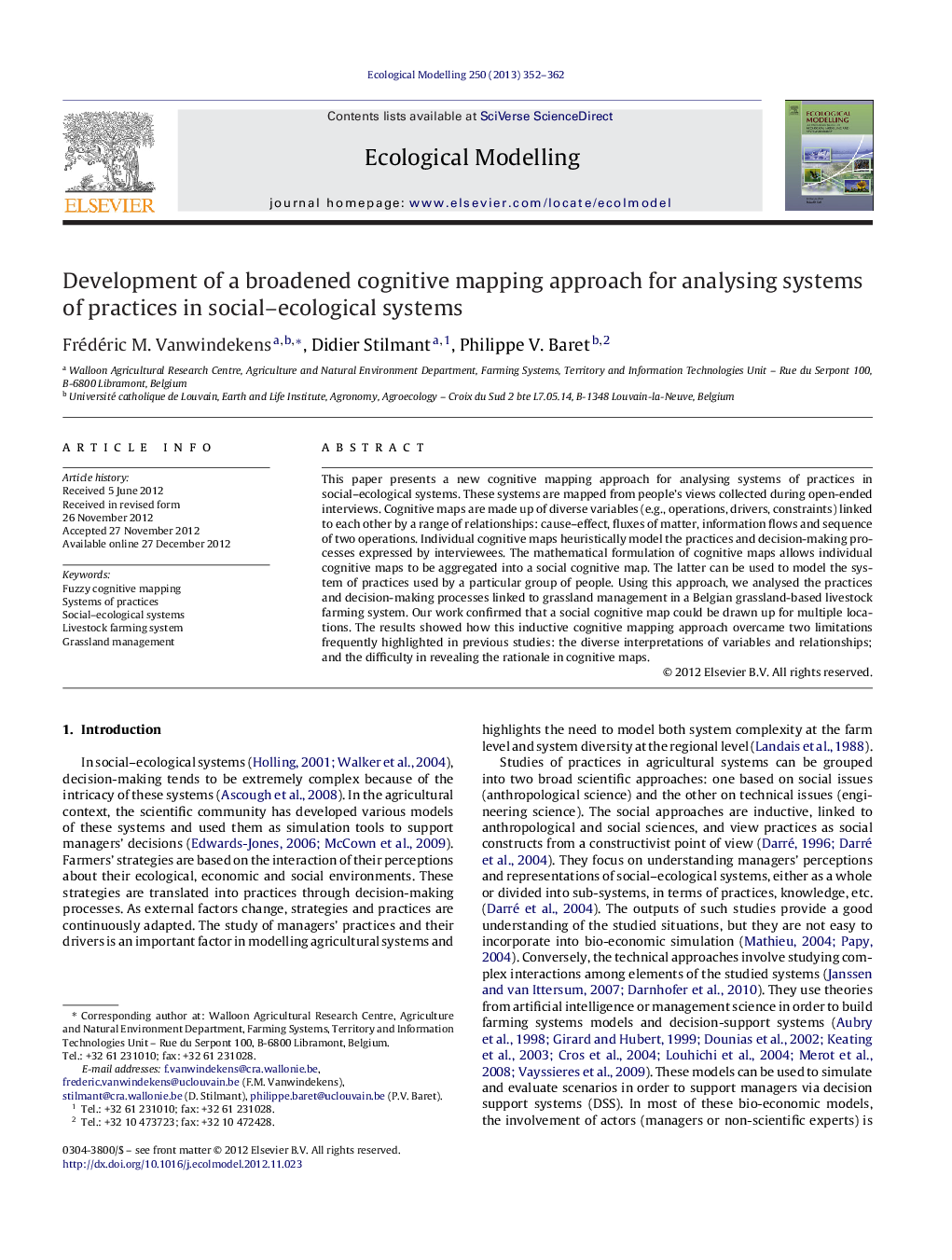| کد مقاله | کد نشریه | سال انتشار | مقاله انگلیسی | نسخه تمام متن |
|---|---|---|---|---|
| 4376263 | 1617495 | 2013 | 11 صفحه PDF | دانلود رایگان |

This paper presents a new cognitive mapping approach for analysing systems of practices in social–ecological systems. These systems are mapped from people's views collected during open-ended interviews. Cognitive maps are made up of diverse variables (e.g., operations, drivers, constraints) linked to each other by a range of relationships: cause–effect, fluxes of matter, information flows and sequence of two operations. Individual cognitive maps heuristically model the practices and decision-making processes expressed by interviewees. The mathematical formulation of cognitive maps allows individual cognitive maps to be aggregated into a social cognitive map. The latter can be used to model the system of practices used by a particular group of people. Using this approach, we analysed the practices and decision-making processes linked to grassland management in a Belgian grassland-based livestock farming system. Our work confirmed that a social cognitive map could be drawn up for multiple locations. The results showed how this inductive cognitive mapping approach overcame two limitations frequently highlighted in previous studies: the diverse interpretations of variables and relationships; and the difficulty in revealing the rationale in cognitive maps.
► We developed an approach to model systems of practices in social–ecological systems.
► Open-ended interviews are coded into individual cognitive maps (ICMs).
► For a given set of actors, ICMs can be aggregated in social cognitive maps (SCMs).
► Analysis of SCMs highlights most important relationships within systems of practices.
► Our approach was applied to grass forage management in Belgian grasslands systems.
Journal: Ecological Modelling - Volume 250, 10 February 2013, Pages 352–362